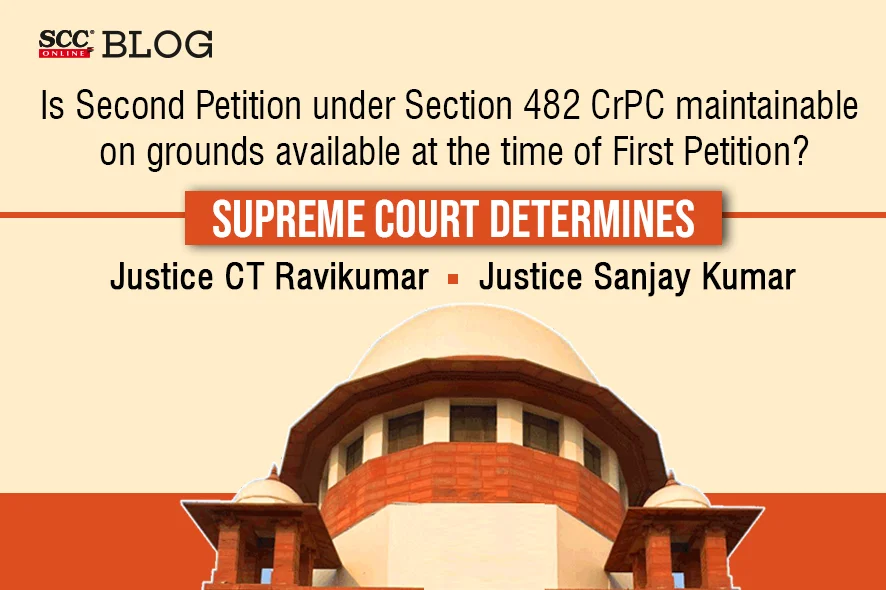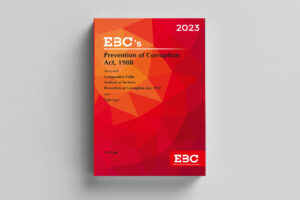Supreme Court: The bench of CT Ravikumar and Sanjay Kumar, JJ was posed with the question as to whether a second petition is maintainable under Section 482 Cr.P.C. on grounds that were available for challenge even at the time of filing of the first petition thereunder. Deciding the same, the Court held that though there can be no blanket rule that a second petition under Section 482 Cr.P.C. would not lie in any situation and it would depend upon the facts and circumstances of the individual case, it is not open to a person aggrieved to raise one plea after the other, by invoking the jurisdiction of the High Court under Section 482 Cr.P.C., though all such pleas were very much available even at the first instance.
In exercise of power under Section 197 Cr.P.C. and Section 19 of the Prevention of Corruption Act, 1988, by order dated 03.12.2013, the Government of Uttar Pradesh accorded sanction to prosecute the petitioner for the offences alleged under Sections 409, 420, 467 and 471 IPC and Sections 7 and 13 of the Act of 1988 and any other offences relating thereto. The charge sheet was filed in 2015, and the case was taken on file by the Special Court in Bareilly. The petitioner initially filed a petition challenging the government’s sanction order in 2018, but it was disposed of by the Allahabad High Court, granting liberty to the petitioner to challenge the sanction order before the Trial Court. Significantly, at the time of filing of this first petition under Section 482 Cr.P.C., the charge sheet was very much on record and the learned Sessions Judge, Rampur, had already taken cognizance.
However, it was only in the year 2022 that the petitioner felt inspired to file a second petition under Section 482 Cr.P.C., seeking to quash the charge sheet, cognizance order, and proceedings in the case. However, this petition was dismissed by the High Court. Holding that it was not open to the petitioner to go on challenging the proceedings one by one and as he had not felt aggrieved by the charge sheet or the order of cognizance when he had filed the first petition under Section 482 Cr.P.C., the High Court concluded that the subsequent petition challenging the same would not be maintainable and dismissed the application. It is against this order that the petitioner approached this Court by way of the present case.
The petitioner, hence, approached the Supreme Court against this dismissal order. The Supreme Court, observed that, in the case on hand, the filing of the charge sheet and the cognizance thereof by the Court concerned were well before the filing of the first petition under Section 482 Cr.P.C., wherein challenge was made only to the sanction order. Hence, the petitioner was not at liberty to again invoke the inherent jurisdiction of the High Court in relation to the charge sheet and the cognizance order at a later point of time.
Refusing to interfere with the impugned order passed by the Allahabad High Court, the Supreme Court observed that,
“Permitting the filing of successive petitions under Section 482 Cr.P.C. ignoring this principle would enable an ingenious accused to effectively stall the proceedings against him to suit his own interest and convenience, by filing one petition after another under Section 482 Cr.P.C., irrespective of when the cause therefor arose. Such abuse of process cannot be permitted.”
[Bhisham Lal Verma v. State of Uttar Pradesh, 2023 SCC OnLine SC 1399, decided on 30.10.2023]
Judgment authored by Justice Sanjay Kumar
Know Thy Judge | Supreme Court of India: Justice P V Sanjay Kumar
Advocates who appeared in this case :
Amicus Curiae: Mr. S. Nagamuthu, Sr. Adv.
For Petitioner: Sr. Adv. Pradeep Kumar Singh Baghel and Abhishek Kumar Singh, AOR









